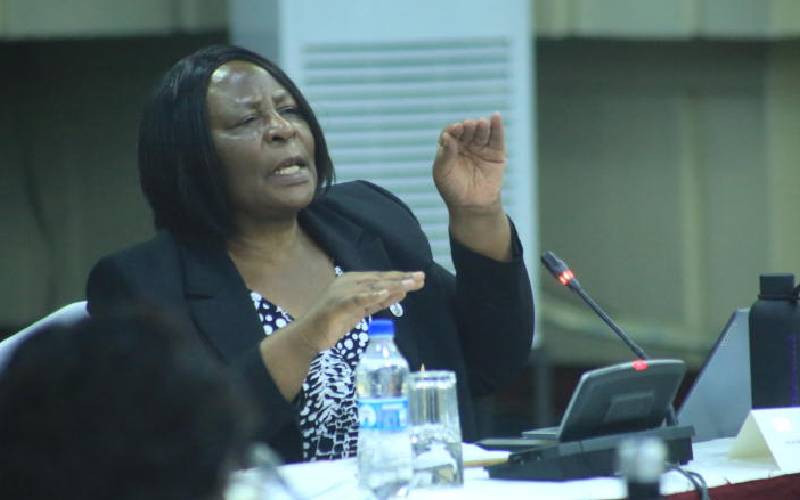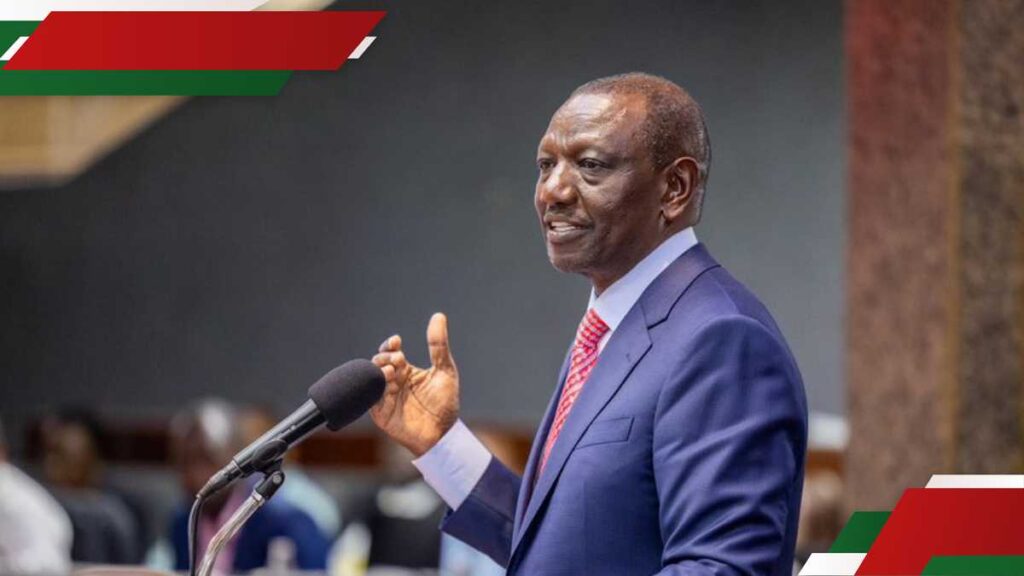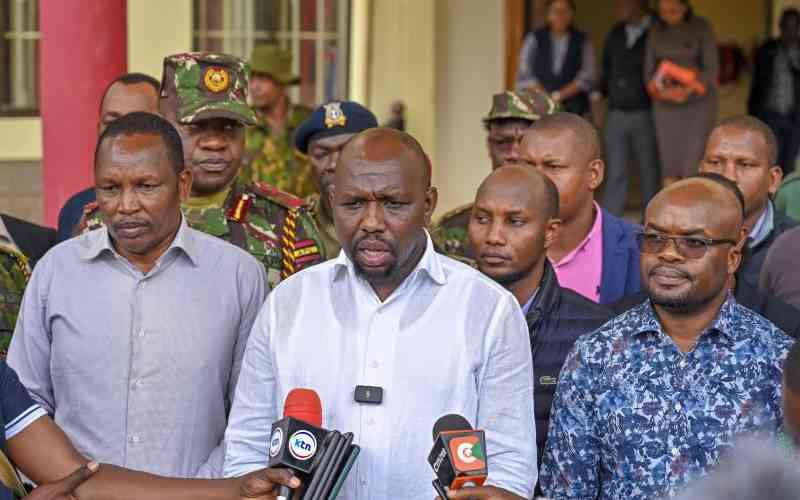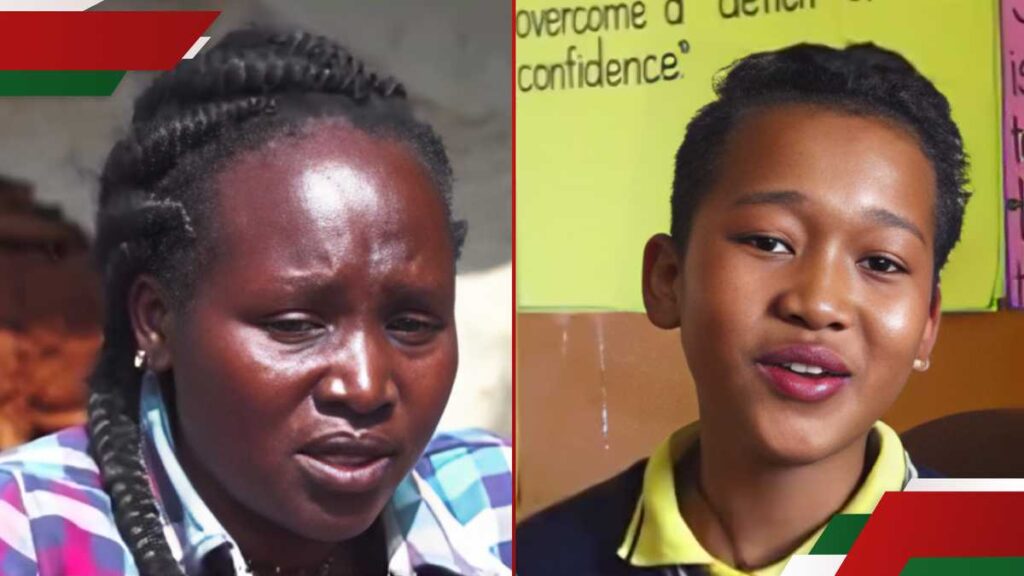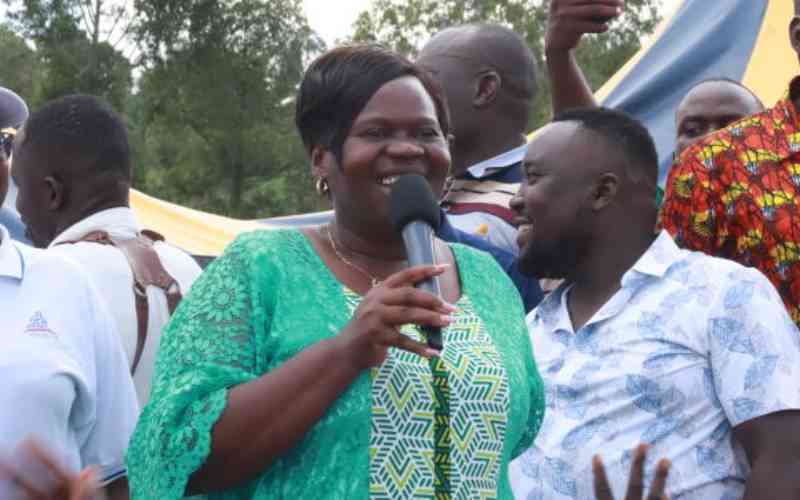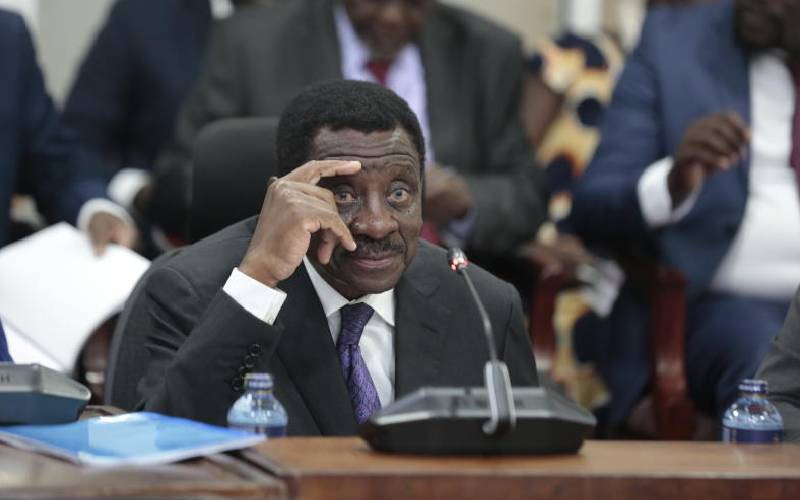Kenya’s Technical Working Group on Gender-Based Violence (GBV) and Femicide chairperson, Nancy Barasa, has raised the alarm over the rising cases of femicide, calling it a national emergency requiring urgent and radical action.
Speaking at a stakeholders’ meeting at Kitale National Polytechnic in Trans Nzoia County, Dr Barasa revealed that nearly 700 women have been killed since 2016—an average of 40 per month, though underreporting suggests the figure could be higher. “Sixty per cent of femicide cases occur in homes. What should be a space of love has become a place of death,” she said.
Barasa condemned the normalisation of domestic violence and highlighted the Sh41 billion annual economic cost of GBV. She announced that the Working Group will present actionable policy reforms to President William Ruto and urged the public to seize the current political goodwill.
“It is shocking how some men beat their wives like they’re eating ugali. These women are left depressed, physically or emotionally broken, and can no longer be economically productive.” She said.
Barasa noted that the economic cost of GBV is staggering: Sh41 billion annually, a combination of direct government spending and the economic losses from victims’ inability to work.
“GBV is not just a social ill; it’s eating into our economy and shaking our social fabric. Young girls are coming to me saying they can’t date because they fear they’ll be killed by their boyfriends. That is the level of fear we’re living with,” she said.
She announced that the Technical Working Group would present radical and actionable policy recommendations to President William Ruto, aiming to close institutional, legal, and policy gaps.
She commended Kenya for being the first country in the world to recognise femicide as a national crisis at the highest level.
Barasa urged citizens to capitalise on the current political goodwill to curb femicide.
“We’re not in a good space as a country, but the fact that our President is focused on this gives us hope. Now we must act,” she emphasised.
Ojiambo Opis, chair of the Persons with Disabilities (PWDs), highlighted the vulnerability of mentally challenged individuals, particularly women, to sexual violence.
“There are people who sneak into homes at night, defile mentally challenged individuals, and walk away scot-free. And we rarely talk about deadbeat fathers, who abandon women with disabilities and their children.” Opis said.
Trans Nzoia Governor George Natembeya emphasized the importance of shared responsibility in addressing the menace.
“Every citizen must take responsibility. This fight cannot be left to the government alone. After victims report to the police, where do they go? Often, they’re left to volunteers or officers who aren’t adequately prepared to support them.” Natembeya said.
Stay informed. Subscribe to our newsletter
The governor proposed that the Department of Gender be fully empowered, beyond its current sporting responsibilities, to work jointly with county governments in supporting survivors and preventing GBV.
County Commissioner Gideon Oyagi addressed the role of informal justice systems, or kangaroo courts, and child labour in perpetuating GBV.
“Kangaroo courts and child labour are breeding grounds for abuse. We must dismantle these systems if we’re serious about ending GBV.” Said Oyagi.
Barasa also condemned harmful cultural practices and rising social phenomena that contribute to GBV.
“Some cultural practices must be critically examined. Even events like Matanga discos have become dangerous spaces where young girls are defiled by drunkards. We need to move with the times. The Constitution allows for a positive culture. Let us embrace that,” she said.
She said that Kenya is at a tipping point, and without decisive collective intervention, the crisis of femicide and GBV could unravel the very core of society.
“This is our moment to rise,” Barasa said. “As a nation, individuals, and institutions, we must confront this monster head-on.”








